Investigating Inclines
On an extremely cold morning, an extremely curious three-year-old named Jamison embarked on an impromptu investigation of math and science concepts in our block room.
Jamison started the investigation with a small ramp and a single car. The fever caught on with Jamison’s fellow early STEM explorers, who began setting up ramps and obstacles all over the classroom.
Jamison had inadvertently sparked a GROUP PLAY BUZZ!
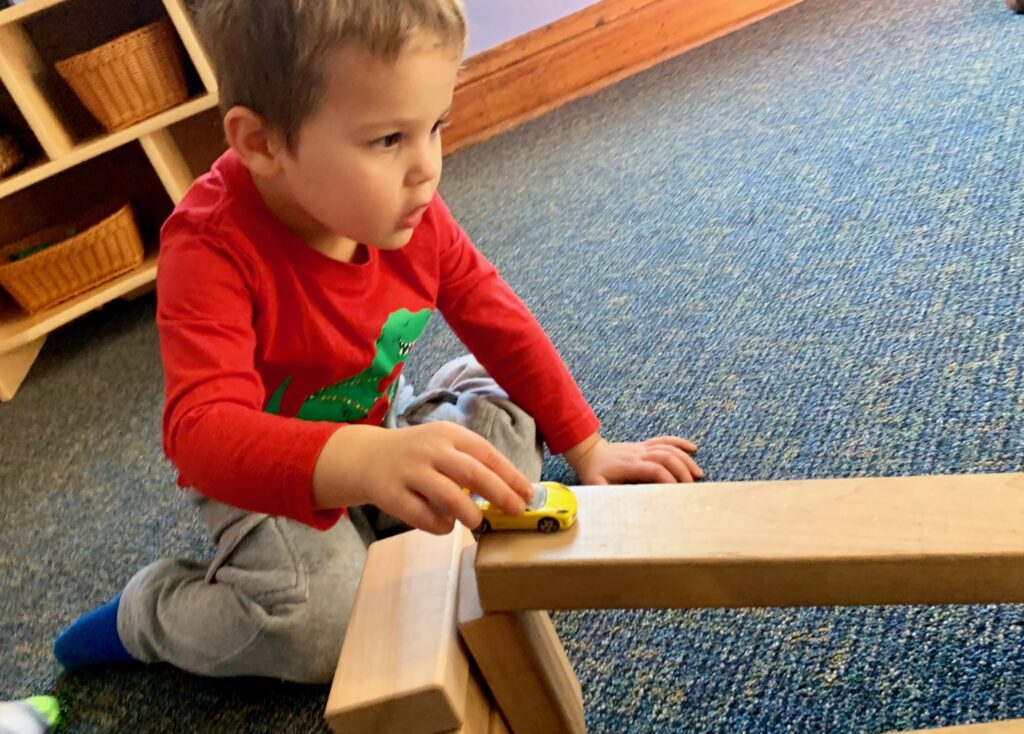
What exactly is a play buzz? It was first described to me as “a moment during free play when all is good, all is right, all needs are being met and all children are learning.”
I would love to give credit to the genius teacher who coined that phrase. It’s a teacher’s dream! These are the moments of moving and learning and exploring that foster brain development. This is true child-led learning!
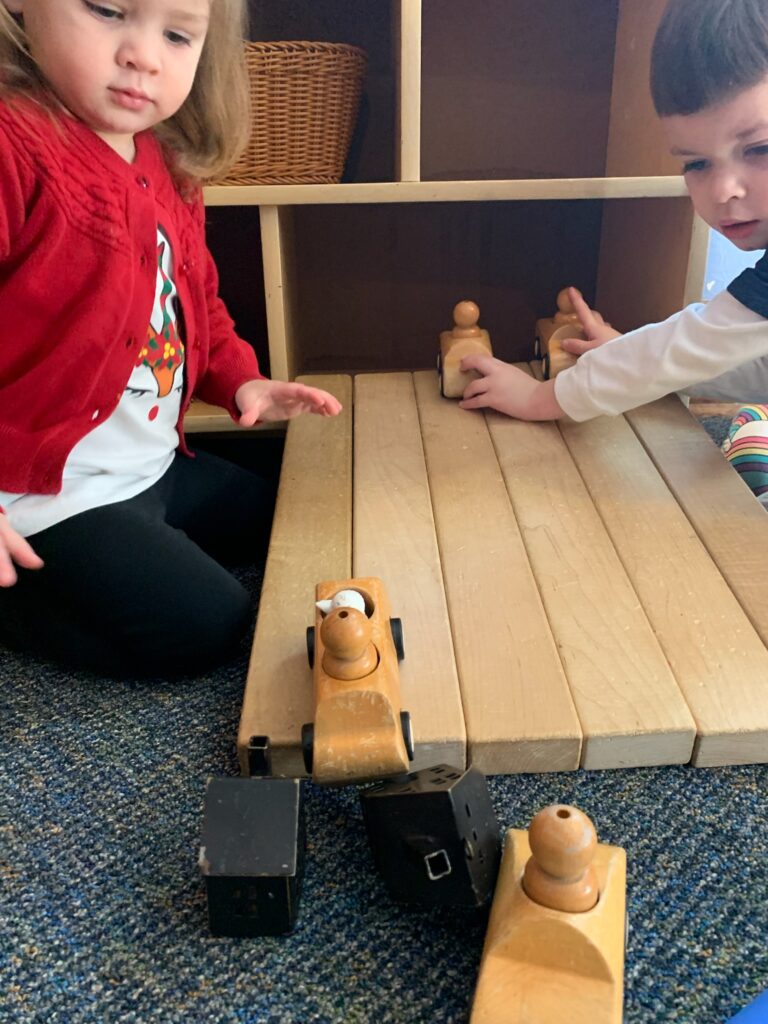
Whenever you see a play buzz in action, observe the learning that’s happening in front of your eyes and listen to the words that your students are using.
“Maybe if we push it, it will go faster!” Sarah suggests.
When Sarah says “push,” this vocabulary word leads to action. The outcome of this action is an effect. Changing the height (elevation) to get a faster roll is working with speed. This is a scientific investigation in progress.
Words like “push,” “pull,” “launch” and “force” are all science action words. This is how we lay the foundation for later science learning through childhood investigation, teamwork and learning through play.
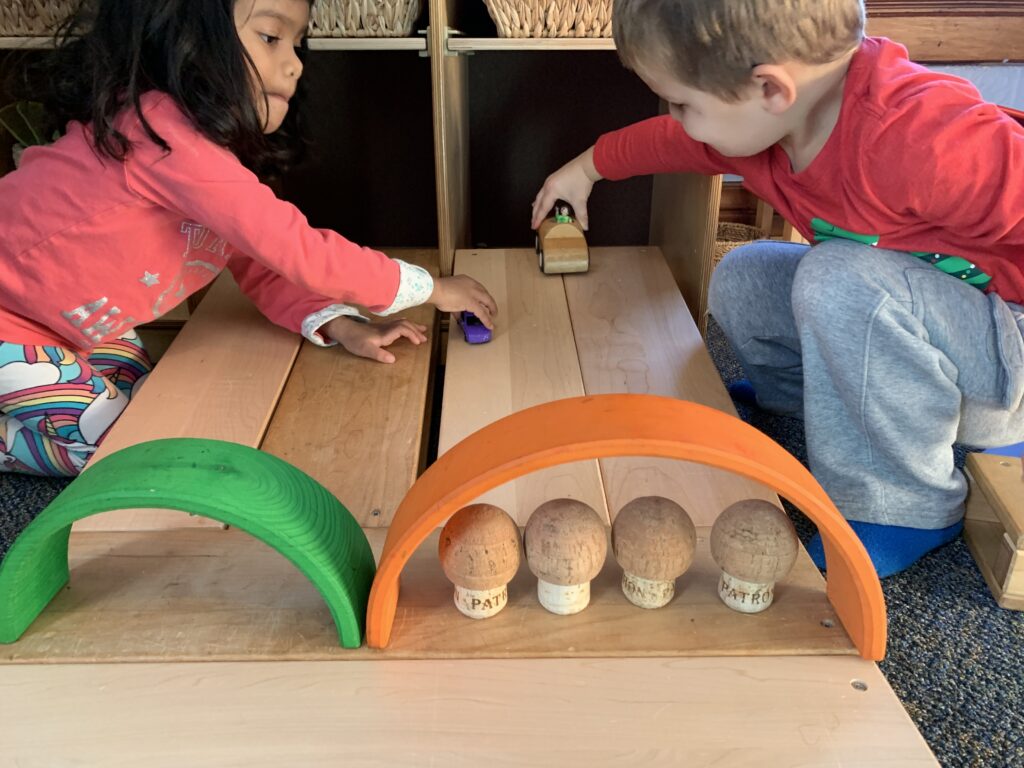
Today, the children are learning about persistence and problem-solving, propelled by the simple but profound joy of creative play.
By making predictions, changing designs and collecting data for their next experiment, the children are building the foundation for more advanced learning in data analysis and probability in the years to come.
We are knocking out those Illinois Early Learning Standards by the minute!
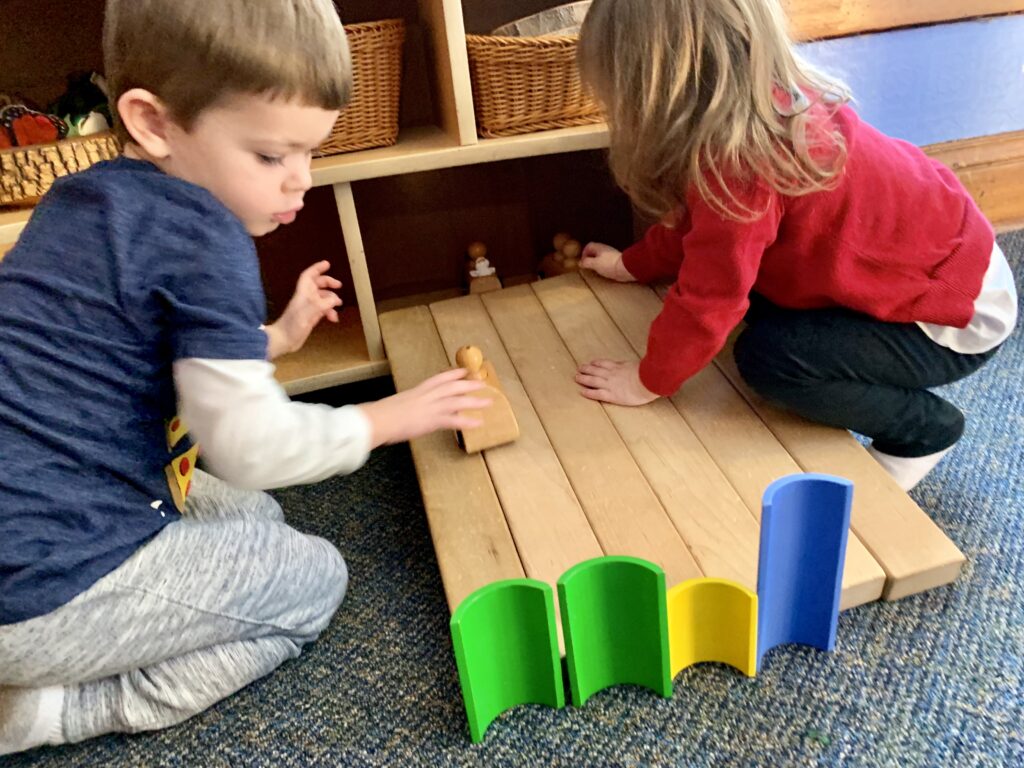
Vocabulary words are being tossed about in typical preschool language, including words such as up, down, fast, faster, speed, tall, short, in front of, behind, balance, circle, line, flat and corner.
When children play and experiment with ramps and cars, they learn the language of science, engineering and math.
This STEM vocabulary helps them problem-solve out loud and communicate their thoughts and investigative processes to others.
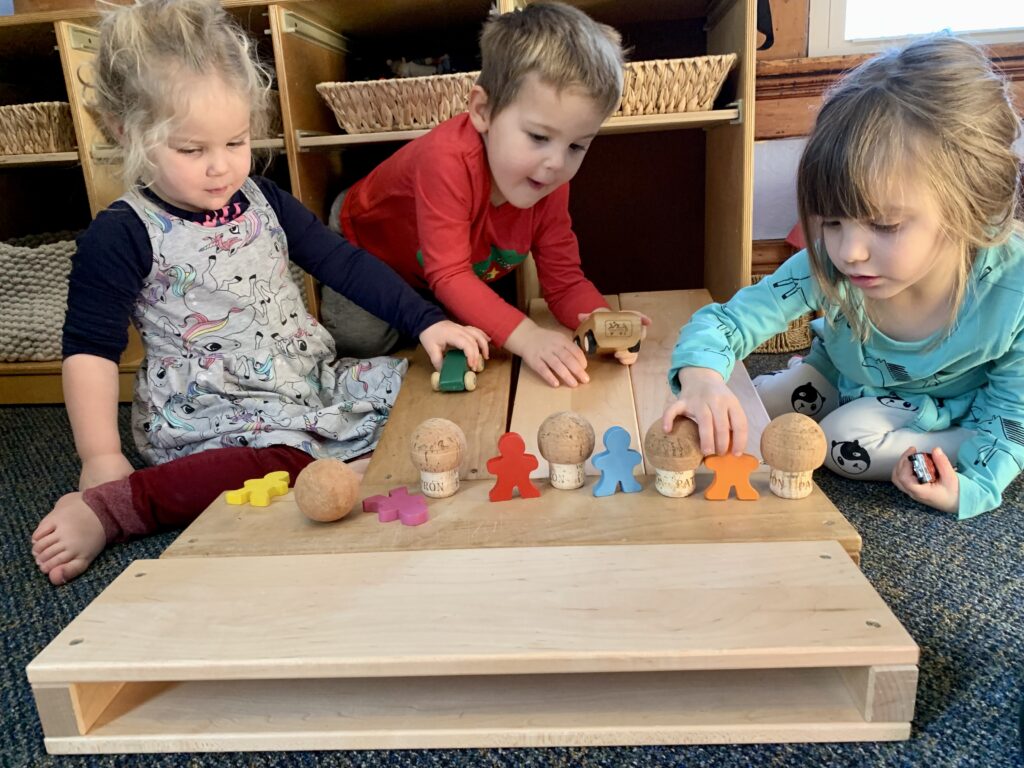
When play buzzes happen, the energy in the room will feel calm and focused. This is the deep, hands-on learning that connects the synapses in the brain and builds a strong foundation for academic success.
This is the perfect time to observe the learning that is underway and document it with photos and/or notes.
What turns your students on? Observe your students to determine the types of activities that might spark a play buzz. Then let the learning take care of itself!
Looking for more early STEM investigations? Try these Early Science Matters lesson plans, and then click on the CONNECT WITH FAMILIES button in the left-hand column to share a letter about each lesson with parents:
Cars and ramps are always fun.
We have races all the time with building blocks and legos. The kids race and observe speed, the inclines and how high they can build.